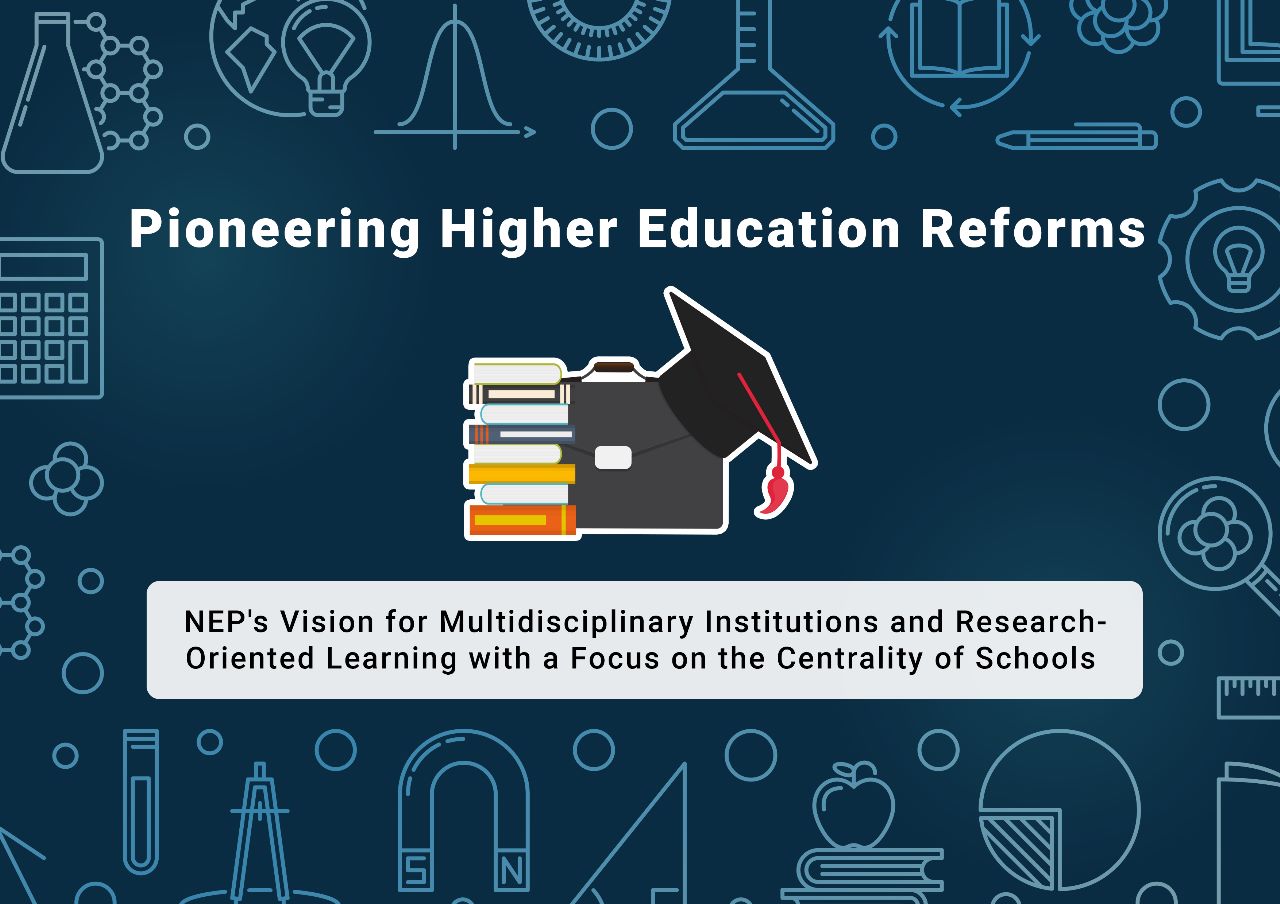Pioneering Higher Education Reforms: NEP's Vision for Multidisciplinary Institutions and Research-Oriented Learning with a Focus on the Centrality of Schools
By~ Scholar Planet
Created At: 30 Jul, 2023

The National Education Policy
(NEP) of India, introduced with the aspiration to transform the entire
educational landscape, places a special emphasis on higher education reforms.
With the recognition that the higher education system plays a pivotal role in
shaping future leaders, innovators, and critical thinkers, the NEP introduces groundbreaking
changes to elevate the quality and relevance of higher education in the
country. This article delves into the NEP's proposed reforms in the higher
education sector, focusing on the establishment of multidisciplinary
institutions and the promotion of research-oriented learning, with a core focus
on the centrality of schools.
One of the key pillars of the
NEP's higher education reforms is the establishment of multidisciplinary
institutions. These institutions aim to break the silos of conventional
education by offering a diverse range of subjects and courses, encouraging
students to pursue interdisciplinary studies. This approach fosters a holistic
understanding of complex real-world challenges and cultivates the ability to
connect knowledge from various domains, thereby nurturing well-rounded and
adaptable graduates.
Moreover, the NEP emphasizes the
importance of liberal education and the inclusion of vocational courses in the
curriculum of multidisciplinary institutions. By integrating practical and
hands-on learning experiences, students can acquire skills that directly align
with the demands of the job market, making them more employable and job-ready.
Research-oriented learning is
another focal point of the NEP's higher education reforms. The policy envisions
higher education institutions as hubs of research and innovation, encouraging
faculty and students to engage in cutting-edge research across various
disciplines. By nurturing a research culture, the NEP aims to foster a spirit
of inquiry, creativity, and problem-solving, ultimately contributing to the
advancement of knowledge and the socio-economic development of the nation.
Central to the NEP's higher
education reforms is the concept of "centrality of schools." The
policy envisions the establishment of vibrant and well-equipped schools that
serve as a strong foundation for higher education. By strengthening the school
education system, the NEP aims to bridge the gap between school and college
education, ensuring a seamless transition for students. This approach fosters a
love for learning from an early age and creates a pipeline of motivated and
academically prepared students for higher education institutions.
Additionally, the centrality of
schools entails a focus on teachers' professional development and support. By
investing in the training and well-being of teachers, the NEP aims to create a
skilled and motivated teaching workforce that can nurture the intellectual and
emotional growth of students.
In
conclusion, the higher education reforms proposed by the National Education
Policy demonstrate a visionary approach to creating a dynamic and
research-driven educational ecosystem in India. By embracing these reforms and
investing in the transformation of higher education, India is poised to nurture
a new generation of thought leaders, innovators, and change-makers who can
shape a brighter future for the nation and the world.
